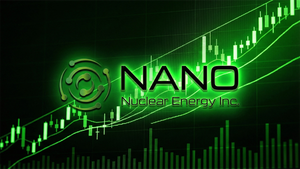
MENLO PARK, CA – October 22, 2025 – Meta Platforms (NASDAQ: META) today announced a significant restructuring within its ambitious Superintelligence Labs AI unit, resulting in the elimination of approximately 600 roles. This strategic decision, disclosed through internal memos, underscores the tech giant's intensified focus on developing "superintelligent" AI and artificial general intelligence (AGI), while simultaneously streamlining its vast AI operations. The move signals a shift towards greater efficiency and a more agile approach in the fiercely competitive race for advanced AI.
The cuts, affecting a portion of the several thousand employees within the Superintelligence Labs, come just months after the unit's formation in July 2025. While presenting immediate challenges for the affected personnel, Meta's leadership frames the restructuring as a necessary step to reduce bureaucracy and accelerate decision-making, ultimately aiming to empower a leaner team to achieve more impactful breakthroughs in AI. This strategic recalibration highlights Meta's commitment to its long-term vision of building AI that surpasses human intelligence, even as it navigates the complexities of large-scale organizational management.
A Surgical Strike for Superintelligence: Details of Meta's AI Overhaul
The approximately 600 roles cut from Meta's (NASDAQ: META) Superintelligence Labs represent a targeted reduction across various established AI teams, including the venerable Facebook Artificial Intelligence Research (FAIR) division, product-related AI teams, and units dedicated to AI infrastructure. Notably, the newly formed TBD Lab group, which is explicitly tasked with pioneering cutting-edge superintelligence research, was intentionally spared from these layoffs and is, in fact, continuing to actively recruit top talent. This distinction clearly delineates Meta's current priorities, emphasizing a surgical approach to consolidate resources around its most ambitious AGI initiatives.
Meta Superintelligence Labs (MSL) was officially established by CEO Mark Zuckerberg in July 2025 with the explicit and formidable mission to build "superintelligent AI" capable of benefiting billions of people. This definition of superintelligence, as articulated by Meta, refers to AI systems that are superior to human intelligence across all possible cognitive domains. MSL was conceived as a unifying entity, bringing together Meta's diverse AI efforts, including the development of its Llama language models, fundamental research from FAIR, and applied AI projects aimed at product integration. The current restructuring, therefore, is not a retreat from this mission, but rather a re-engineering of the organizational machinery designed to achieve it.
This current approach marks a notable divergence from previous, potentially broader, AI strategies. While Meta has been a long-term investor in AI since 2013, fostering a wide array of research and development, Chief AI Officer Alexandr Wang indicated in an internal memo that the AI team's operations had become "overly bureaucratic." The job cuts are intended to foster a more agile structure, where a leaner team requires "fewer conversations to make a decision," thereby increasing the individual responsibility, scope, and impact of each remaining role. This shift also follows a period of senior staff departures and a reportedly lukewarm reception to its open-source Llama 4 model, suggesting a broader strategic reset to ensure Meta's AI investments yield more decisive results. Initial reactions from within the company, while acknowledging the difficulty of the situation, have also highlighted the internal encouragement for affected employees to apply for other open positions within Meta, with the expectation that many will transition to new roles internally.
Competitive Ripples: Reshaping the AI Industry Landscape
Meta's (NASDAQ: META) strategic restructuring within its Superintelligence Labs carries significant competitive implications for the broader AI industry. By shedding approximately 600 roles to foster a leaner, more efficient unit focused squarely on AGI, Meta is signaling an aggressive push that could intensify pressure on its major rivals. Companies like Google (NASDAQ: GOOGL) with its DeepMind division, Microsoft (NASDAQ: MSFT) through its deep partnership with OpenAI, and a myriad of well-funded AI startups are all vying for leadership in advanced AI. Meta's move suggests a belief that a more concentrated effort, rather than a widely distributed one, is the optimal path to achieving superintelligence.
This development could indirectly benefit companies and startups that possess inherently agile structures or those that can quickly pivot their research priorities. Smaller, focused AI labs, particularly those specializing in niche AGI components or foundational models, might find themselves in a stronger competitive position if Meta's streamlined approach proves more effective. The availability of highly skilled AI talent, now potentially seeking new opportunities, could also be a boon for other tech giants or burgeoning AI startups looking to bolster their own teams.
The potential disruption to existing products or services within Meta (NASDAQ: META) itself is likely to be minimal in the short term, given the strategic nature of the cuts aimed at future-oriented AGI development rather than current product lines. However, the internal reshuffling could lead to a temporary slowdown in certain non-AGI related AI research areas, allowing competitors to gain ground in those specific domains. From a market positioning standpoint, if Meta's intensified AGI focus yields significant breakthroughs, it could dramatically enhance its long-term strategic advantage, solidifying its place at the forefront of AI innovation and potentially creating new revenue streams through advanced AI services and products. Conversely, if the streamlining proves too aggressive or fails to deliver on its ambitious AGI goals, it could set back Meta's competitive standing.
Broader Implications: A Catalyst for AI's Next Chapter
Meta's (NASDAQ: META) decision to prune its Superintelligence Labs aligns with a broader trend observed across the AI landscape: a strategic pivot towards efficiency and a heightened, almost singular, focus on achieving artificial general intelligence. While the AI industry has seen continuous growth, there's a growing sentiment that resources, particularly human capital, must be optimally deployed to tackle the monumental challenges of AGI. This move by a tech titan like Meta could serve as a catalyst, prompting other major players to re-evaluate the scale and scope of their own AI divisions, potentially leading to similar restructurings aimed at accelerating AGI development.
The impacts of this restructuring are multifaceted. On one hand, it could lead to a more intense and focused race for AGI, potentially accelerating breakthroughs as top talent and resources are concentrated on this ultimate goal. The reallocation of approximately 600 highly skilled AI professionals, even if many are re-absorbed internally, signifies a significant shift in the talent pool, potentially increasing competition for top AGI researchers across the industry. On the other hand, there are potential concerns regarding employee morale and the risk of "brain drain" if affected individuals choose to leave Meta (NASDAQ: META) entirely, taking their expertise to competitors. There's also a subtle risk that an overly narrow focus on AGI might inadvertently de-emphasize other critical areas of AI research, such as ethical AI, interpretability, or more immediate, practical applications, which could have long-term societal implications.
Comparing this to previous AI milestones and breakthroughs, Meta's (NASDAQ: META) move echoes historical moments where major technological shifts necessitated organizational re-evaluations. While not an "AI winter" scenario, it represents a strategic consolidation, reminiscent of how companies in past tech cycles have streamlined operations to focus on the next big wave. It signifies a maturation of the AI industry, moving beyond a phase of broad exploratory research to one of intense, directed engineering towards a specific, transformative goal: superintelligence. This shift underscores the immense capital and human resources now being dedicated to AGI, positioning it as the defining technological frontier of our era.
The Road Ahead: Navigating the Path to Superintelligence
In the near term, the immediate aftermath of Meta's (NASDAQ: META) restructuring will involve the integration of affected employees into new roles within the company, a process Meta is actively encouraging. The newly streamlined Superintelligence Labs, particularly the unaffected TBD Lab, are expected to intensify their focus on core AGI research, potentially leading to faster iterations of Meta's Llama models and more aggressive timelines for foundational AI breakthroughs. We can anticipate more targeted research announcements and perhaps a clearer roadmap for how Meta plans to achieve its superintelligence goals. The internal re-alignment is designed to make the AI division more nimble, which could translate into quicker development cycles and more rapid deployment of experimental AI capabilities.
Looking further ahead, the long-term developments hinge on the success of this aggressive AGI pivot. If Meta's (NASDAQ: META) leaner structure proves effective, it could position the company as a frontrunner in the development of true artificial general intelligence. This could unlock entirely new product categories, revolutionize existing services across the Meta ecosystem (Facebook, Instagram, WhatsApp, Quest), and establish new industry standards for AI capabilities. Potential applications on the horizon range from highly sophisticated conversational AI that understands nuanced human intent, to advanced content generation tools, and even foundational AI that powers future metaverse experiences with unprecedented realism and interactivity.
However, significant challenges remain. Retaining top AI talent and maintaining morale amidst such a significant organizational change will be crucial. Achieving AGI is an undertaking fraught with technical complexities, requiring breakthroughs in areas like common sense reasoning, multimodal understanding, and efficient learning. Managing public perception and addressing ethical concerns surrounding superintelligent AI will also be paramount. Experts predict that while Meta's (NASDAQ: META) gamble is high-stakes, if successful, it could fundamentally alter the competitive landscape, pushing other tech giants to accelerate their own AGI efforts. The coming months will be critical in observing whether this restructuring truly empowers Meta to leap ahead in the race for superintelligence or if it introduces unforeseen hurdles.
A Defining Moment in Meta's AI Journey
Meta's (NASDAQ: META) decision to cut approximately 600 roles from its Superintelligence Labs AI unit marks a defining moment in the company's ambitious pursuit of artificial general intelligence. The key takeaway is a strategic consolidation: a move away from a potentially sprawling, bureaucratic structure towards a leaner, more agile team explicitly tasked with accelerating the development of "superintelligent" AI. This is not a retreat from AI, but rather a sharpened focus, a doubling down on AGI as the ultimate frontier.
This development holds significant historical weight within the AI landscape. It underscores the immense resources and strategic intent now being poured into AGI by major tech players, indicating a shift from broad exploratory research to a more directed, engineering-centric approach. It signals that the race for AGI is intensifying, with companies willing to make difficult organizational choices to gain a competitive edge. The implications ripple across the industry, potentially reallocating top talent, influencing the strategic priorities of rival companies, and setting a new benchmark for efficiency in large-scale AI research.
In the coming weeks and months, the tech world will be watching closely. Key indicators to monitor include Meta's (NASDAQ: META) ability to successfully re-integrate affected employees, the pace of new research announcements from the streamlined Superintelligence Labs, and any shifts in the AI strategies of its primary competitors. This restructuring is a bold gamble, one that could either propel Meta to the forefront of the AGI revolution or highlight the inherent challenges in orchestrating such a monumental undertaking. Its long-term impact on the future of AI will undoubtedly be profound.
This content is intended for informational purposes only and represents analysis of current AI developments.
TokenRing AI delivers enterprise-grade solutions for multi-agent AI workflow orchestration, AI-powered development tools, and seamless remote collaboration platforms.
For more information, visit https://www.tokenring.ai/.





